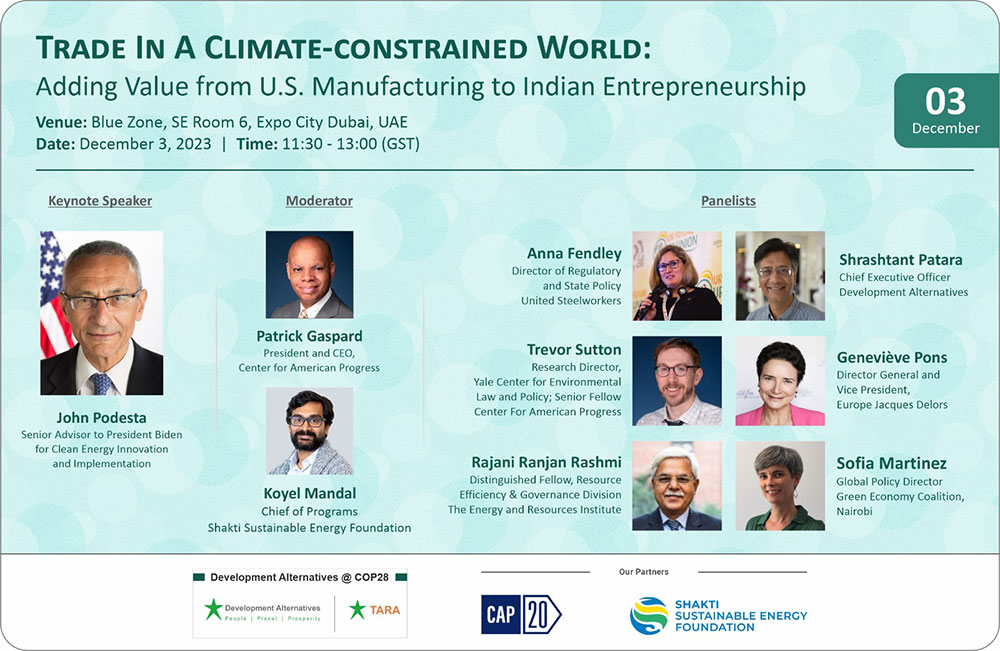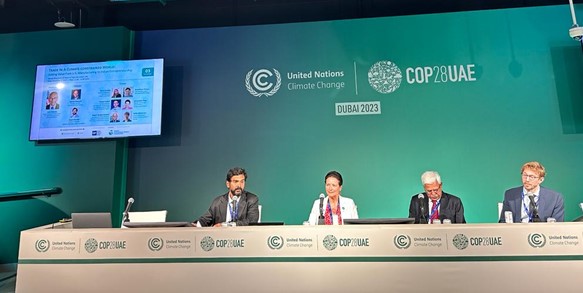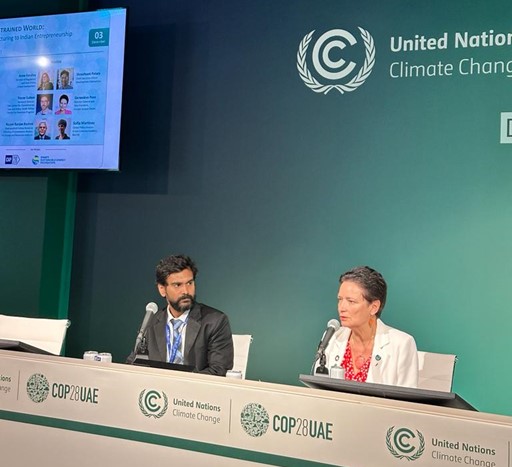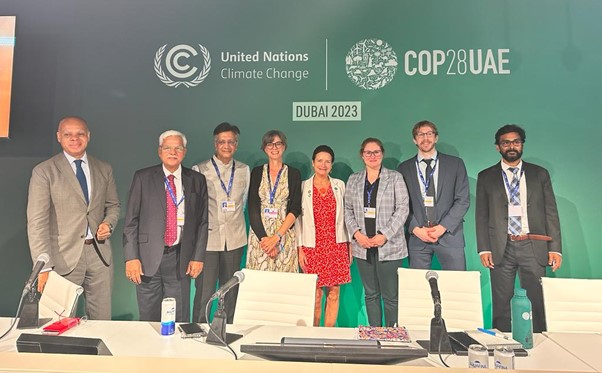



Venue: UNFCCC Pavilion (SE Room 6)
Date: December 3, 2023
Time: 11:00 to 13:30 GST

Koyel Mandal, Chief of Programmes, Shakti, moderated a session to discuss the implications of new global trade mechanisms within the context of climate change. The session aimed to explore potential opportunities for industrial growth and energy transitions while addressing the compliance challenges that these mechanisms present for developing nations.
Mr John Podesta, Senior Advisor to the US President for Clean Energy Innovation, gave the keynote address at the panel.
Watch recording of the UNFCCC session
Keynote Address: Mr John Podesta, Senior Advisor, US President for Clean Energy Innovation

Panel 1: Legal Design Elements of Green Trade Operations

Moderator: Koyel Mandal – Chief of Programs at Shakti Sustainable Energy Foundation
Panelists:
- Geneviève Pons – Director General and Vice President, Europe Jacques Delors
- Rajani Ranjan Rashmi – Distinguished Fellow at the Resource Efficiency & Governance Division of The Energy and Resources Institute
- Trevor Sutton – Research Director, Yale Center for Environmental Law and Policy; Senior Fellow, Center for American Progress

Panel 2: Green Trade Challenges and Opportunities for Working People
Moderator: Patrick Gaspard – President and CEO of the Center for American Progress
Panelists:
- Shrashtant Patara – CEO of Development Alternatives
- Sofía Martínez – Global Policy Director, Green Economy Coalition
- Anna Fendley – Director of Regulatory & State Policy at United
Key Highlights:
- Trade policies should adopt a people-centric approach, incorporating principles of justice and equity.
- The design of the Inflation Reduction Act and other trade instruments aims to promote innovations in clean energy development while fostering justice, equity, and economic development.
- The European Union (EU) has refined the Carbon Border Adjustment Mechanism (CBAM) since 2019 based on expert feedback. CBAM is introduced with the core objective of reducing carbon leakage while establishing a fair price for carbon usage. The EU proposes using CBAM revenue to support the Nationally Determined Contributions (NDCs) of developing and least-developed nations. The EU is actively working on instruments to ensure transparency in the entire carbon measurement system.
- Developing countries advocate for community-centric trade instruments that incentivise small businesses. Suggestions for designing trade instruments include:
- Holistic development of CBAM rather than a unilateral approach.
- Harmonization of standards when specifying carbon taxes.
- Clear specification of sectoral and import thresholds.
- Establishment of a taxonomy of green actions for Micro, Medium, and Small Enterprises.
- Prerequisite capacity building for local communities in technological innovations, digital access, etc.

